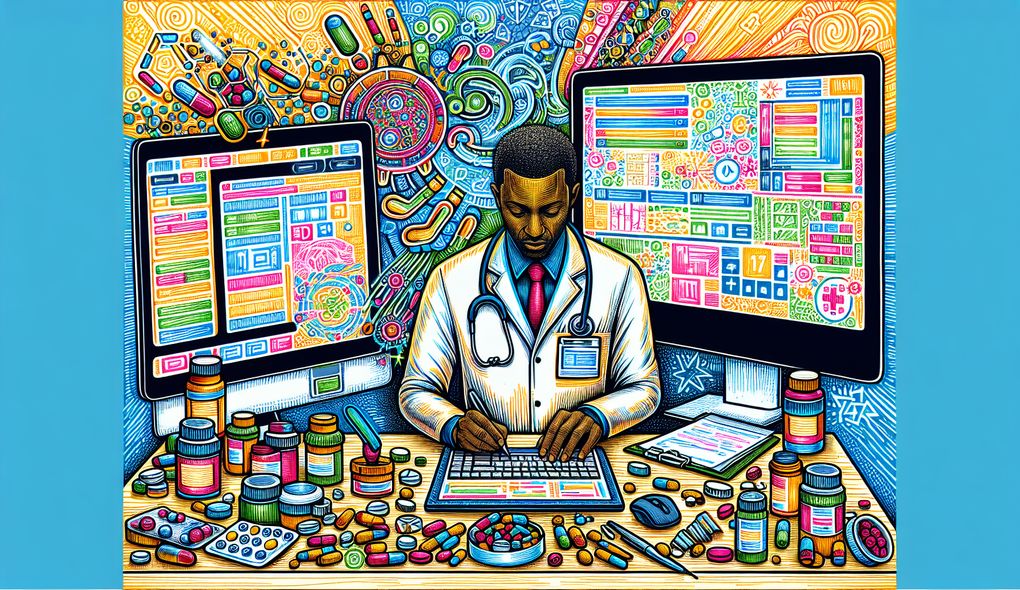What methods do you use to analyze pharmacy data and improve patient outcomes?
INTERMEDIATE LEVEL

Sample answer to the question:
To analyze pharmacy data and improve patient outcomes, I use a combination of data analysis tools, software programs, and my expertise in pharmacy informatics. I start by collecting and organizing the relevant data, including medication usage, patient profiles, and clinical outcomes. Then, I use analytics tools to identify trends and patterns in the data, such as medication adherence rates or the effectiveness of certain treatments. Based on my analysis, I can make recommendations to healthcare professionals to improve patient outcomes, such as adjusting medication regimens or implementing targeted interventions. Additionally, I also collaborate with clinical pharmacists and other healthcare professionals to develop strategies and protocols for medication management, ensuring that the pharmacy operations align with best practices and regulatory standards.
Here is a more solid answer:
In analyzing pharmacy data, I leverage my strong analytical and problem-solving skills to identify patterns and insights that can lead to improved patient outcomes. I am proficient in the use of various pharmacy informatics systems, such as medication management software and electronic medical records. I have experience collecting and organizing pharmacy data, including medication usage, patient profiles, and clinical outcomes. Using analytics tools, I can track medication adherence rates, identify potential drug interactions, and evaluate the effectiveness of different treatment plans. Based on my analysis, I collaborate with clinical pharmacists and healthcare professionals to develop targeted interventions, adjust medication regimens, and optimize medication management strategies. Furthermore, I ensure that my work complies with healthcare regulations and privacy laws, prioritizing patient confidentiality and data security.
Why is this a more solid answer?
The solid answer expands on the basic answer by providing more specific details on the candidate's experience and their application of analytical skills and pharmacy informatics systems. The answer also highlights their knowledge of healthcare regulations and compliance, which is a key requirement of the job.
An example of a exceptional answer:
Analyzing pharmacy data and improving patient outcomes requires a multifaceted approach that I have successfully implemented throughout my career. I start by comprehensively gathering data from different sources, including electronic medical records, medication databases, and clinical trials. Using my in-depth knowledge of pharmacy informatics systems, I employ advanced analytics techniques to identify trends, outliers, and potential areas for improvement. For example, I may utilize predictive modeling to forecast patients at risk of medication non-adherence or adverse reactions. Additionally, I collaborate closely with clinical pharmacists, physicians, and other healthcare professionals to interpret the data and develop evidence-based interventions. Together, we create personalized medication plans, monitor treatment progress, and adjust therapy as needed. Furthermore, I remain updated with healthcare regulations and compliance standards to ensure the ethical and legal use of patient information.
Why is this an exceptional answer?
The exceptional answer goes above and beyond by highlighting the candidate's extensive experience in analyzing pharmacy data and improving patient outcomes. It demonstrates their expertise in utilizing advanced analytics techniques and their ability to collaborate with healthcare professionals to develop evidence-based interventions. The answer also emphasizes the candidate's commitment to staying updated with healthcare regulations and compliance standards, showcasing their ethical and legal approach to data analysis and patient care.
How to prepare for this question:
- Familiarize yourself with various pharmacy informatics systems and software programs commonly used in the industry.
- Demonstrate your ability to collect, organize, and analyze pharmacy data, highlighting specific projects or examples where you have done so.
- Discuss how you collaborate with clinical pharmacists and other healthcare professionals to improve patient outcomes through data analysis.
- Stay updated with healthcare regulations and compliance standards, and be prepared to discuss how you ensure patient privacy and data security in your work.
- Highlight any experience or knowledge in predictive analytics or advanced analytics techniques that can contribute to improving patient outcomes.
What are interviewers evaluating with this question?
- Analytical and problem-solving skills
- Proficiency in pharmacy informatics systems
- Knowledge of healthcare regulations and compliance

